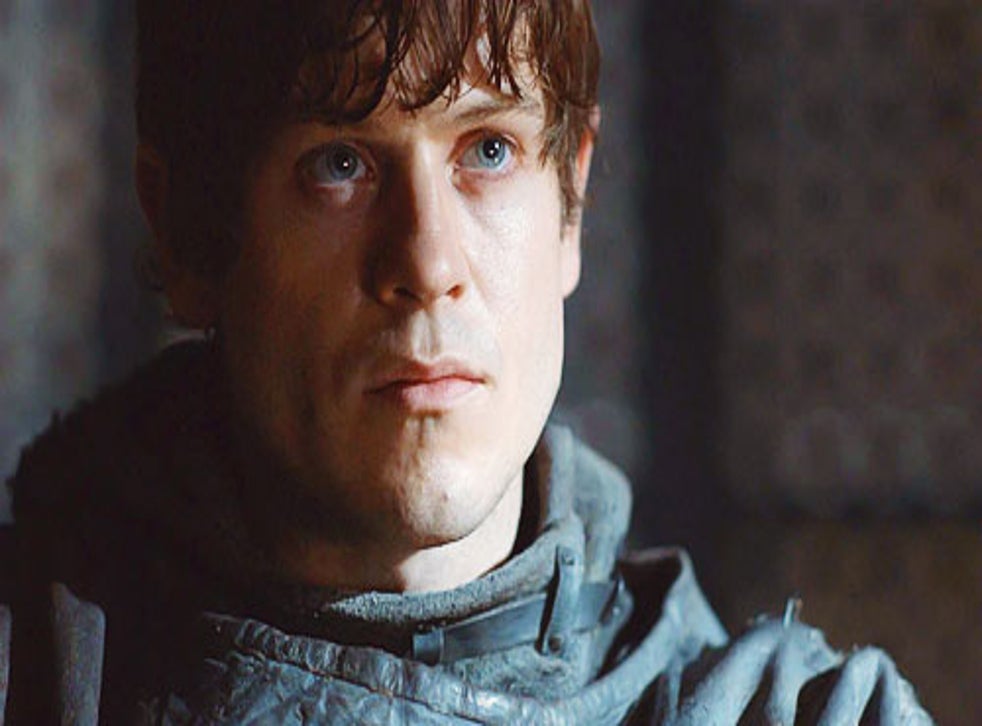Television has been responsible for some of the biggest cultural shifts in history. It has the ability to change how we see celebrities, or discuss subjects that were previously deemed taboo. It can launch careers and also end them.
Ofcom has since announced it will not be investigating the complaints, with a spokesperson commenting: “Diversity’s performance referred to challenging and potentially controversial subjects, and in our view, its central message was a call for social cohesion and unity.
“Any depictions of violence by the performers were highly stylised and symbolic of recent global events, and there was no explicit reference to any particular political organisation – but rather a message that the lives of black people matter.“

Game of Thrones was already infamous for its graphic scenes of sex, torture and murder by the time the fifth season aired on HBO in 2015. But even so, fans were left reeling at the horrific moment that the evil Ramsay Bolton (Iwan Rheon) rapes his new bride, Sansa Stark (Sophie Turner), while Theon Greyjoy (Alfie Allen) is forced to watch.
Many critics reviewing the episode condemned showrunners David Benioff and DB Weiss, saying it undermined Sansa’s character development. Others questioned why there was more uproar over this particular scene than the many previous sexual assaults against other characters. Some viewers, including then-US senator Claire McCaskill, claimed they would stop watching the show because of the scene. “Ok, I’m done Game of Thrones,” she tweeted. “Gratuitous rape scene disgusting and unacceptable.”
Celebrity Big Brother, “punchgate”
Celebrity Big Brother 2018: The moment Ryan Thomas ‘punches’ fellow housemate Roxanne Pallett
Celebrity Big Brother received a massive 25,327 complaints regarding its 2018 scandal, which was dubbed “punchgate”. During an episode, a tearful Roxanne Pallett accused her housemate and fellow soap actor Ryan Thomas of physically assaulting her. She then accused him of “lying” and “manipulating” the other housemates when he denied intentionally hurting her.
Replays of the incident later revealed that Pallett had heavily exaggerated the incident, and it was in fact a playfight. After a national uproar, Pallett was removed from the house and Thomas ended up winning the competition. The incident became the most-complained about TV moment of the decade.
Seinfeld insulting Puerto Ricans
Aired in 1998, one of the final episodes of Seinfeld managed to mire itself in controversy. Titled “The Puerto Rican Day”, the episode sees the show’s characters stuck in traffic due to the annual Puerto Rican Day Parade. At one point, Kramer sets a Puerto Rican flag on fire then stomps on it.
The episode sparked a major backlash and anger from the then-president of the National Puerto Rican Coalition. Broadcaster NBC was forced to apologise, and the episode was banned for several years.
The Ellen DeGeneres Show is currently in the midst of its own controversy, due to allegations of bullying and harassment behind the scenes. But Ellen DeGeneres made history in 1997 on her sitcom The Ellen Show, when her character – also called Ellen and based on herself – came out on national TV. While DeGeneres herself had come out publicly a few days before, in Time magazine, gay characters on scripted shows were still rare. There were reports that the show lost some of its sponsors as a result, while DeGeneres and her co-star Laura Dern experienced career setbacks.
Spike tries to rape Buffy
In 2002, Buffy the Vampire Slayer upset many fans with a scene that showed main character Spike, a vampire, try to rape the show’s hero, Buffy. In the scene, Spike tells Buffy how he feels about her, shortly after she ended their relationship. After insisting that she’s hiding her true feelings for him, he violently attacks her and tries to rape her. Buffy manages to free herself and yells at him, telling him this was why she cannot trust him.
While the episode as a whole was considered important for Spike’s character, as he seeks to find a way to make himself a man worthy of Buffy, it caused considerable controversy and debate among fans, and still does to this day. Actor James Marsters, who played Spike, said shooting the scene was the “hardest day of his professional life”.
Mister Rogers talking about the Cold War
Mister Rogers’ Neighbourhood tackled myriad issues in a way that made them easy for the show’s young audience to understand and process. However, presenter Fred Rogers, or Mister Rogers, broached a major hot-button topic when he decided to tackle nuclear war. He believed there was growing concern among his young fans over Cold War headlines, and so came up with a five-episode plot for the summer of 1983.
“This show gives us a chance to talk about war, and about how it’s essential that people learn to deal with their feelings and to talk about things and resolve conflicts,” Rogers said in the episodes, which addressed bombs, war, and air-raid drills. Due to the controversial subject, the episodes were removed from syndicated airings. Two of the episodes resurfaced in 2017, around the time that US president Donald Trump was planning to increase military spending.
Like Game of Thrones, Family Guy was already known for being controversial when it aired this 2010 episode in which Lois gets an abortion. During the show, Lois agrees to be a surrogate for a couple who are later killed in a car accident, and then has to decide whether to keep or abort the baby. Peter tries to persuade her to keep it after being swayed by anti-abortion activists, but Lois decides to get the abortion. While critics reacted favourably to the plot, it was banned from airing on the Fox Broadcasting Company.
Jimmy Fallon ruffling Trump’s hair
During the run-up to the 2016 presidential election, Donald Trump was doing the rounds on a number of talk shows, including Jimmy Fallon. Many expected that Fallon would use the opportunity to mock Trump, who was already causing concern with his extreme views. However, Fallon was criticised for what was deemed a “softball” interview, in which he asked the now-president for permission to ruffle his hair. While he later said in 2018 that he regretted the way he handled the interview, Fallon also defended himself and said the show’s interviews had always been conducted in that style. Trump himself was furious at Fallon’s backtracking, and tweeted a demand that he “be a man”.
The Simpsons, typically less controversial than other animated sitcoms such as South Park and Family Guy, was accused of depicting a “distorted vision of Brazilian reality” by then-president Fernando Henrique Cardoso. The offending episode, which aired in 2002, followed the family as they experienced a number of ordeals in Rio, including Homer being kidnapped, and he and Bart being mugged by children. The show’s executive producer, James L Brooks, later issued an apology, albeit a tongue-in-cheek one.
Few TV moments are more memorable than Tom Cruise declaring his love for Katie Holmes on the set of Oprah. In 2005, it became one of YouTube’s first hits, after a clip of the incident was uploaded to the then-new website. Cruise, one of the world’s biggest film stars, was scheduled on the show to discuss his new movie, War of the Worlds. Things went awry when he started gushing about his new girlfriend, instead, and abruptly jumped onto Oprah’s sofa, prompting screams from the live audience and stunning his host. The moment was so huge that it was parodied on Sesame Street, and galvanised the gossip press at a time when celebrity culture was undergoing a drastic shift.



















![[Book Review] The Blade Itself (The First Law Trilogy) by Joe Abercrombie](https://bendthekneegot.com/wp-content/uploads/2018/01/1516047103_maxresdefault-218x150.jpg)
















